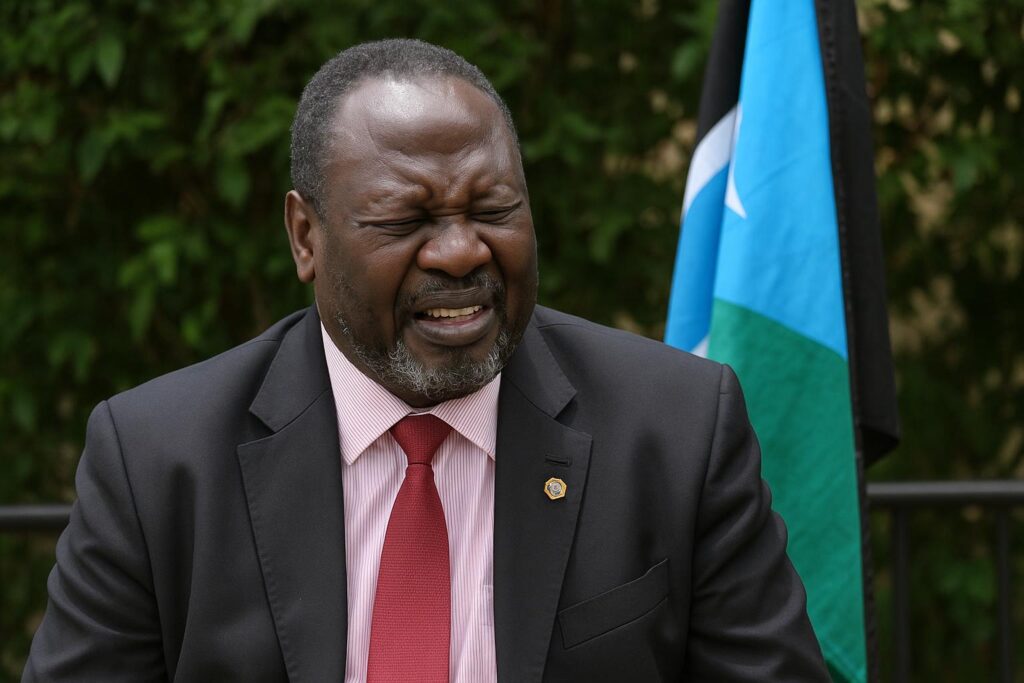Detention Shakes South Sudan Politics
Dr Riek Machar, First Vice-President and head of the SPLM-IO, has remained under house arrest in Juba since 2021, without formal charges. Observers say the measure, initially linked to security arrangements, now shapes the political landscape months before South Sudan’s long-promised elections.
House Arrest and Legal Questions
South Sudan’s constitution protects movement and due process, yet no court has processed Machar’s case. Justice Ministry officials decline comment, while government spokespeople describe the detention as a “transitional safeguard,” a phrase critics argue lacks clear legal basis under national or regional statutes.
Health Concerns Under Tight Restrictions
Unlike other senior officials who routinely seek treatment abroad, Machar has been denied exit clearances. SPLM-IO members warn that prolonged confinement jeopardises his health. Government aides insist medical teams stand ready in Juba, but have not disclosed independent assessments or access by humanitarian doctors.
Election Campaigns on Uneven Ground
The ruling SPLM has held nationwide rallies since 2022, while several SPLM-IO requests for public meetings were rejected by local authorities. Opposition organisers claim these denials erode political pluralism. Officials counter that security conditions differ by state and that permits are assessed case by case.
Historical Echoes and Regional Memories
Civil society voices draw parallels with the late Egyptian president Mohammed Morsi, who died in custody, and with the last days of Romania’s Nicolae Ceaușescu. Scholars caution that such analogies, while imperfect, underscore the risks of prolonged personalised rule and the cost of missing reforms.
Regional and International Stakes
IGAD mediators and the African Union have reiterated calls for full implementation of the 2018 Revitalised Peace Agreement. Western donors link future budgetary support to credible elections. Kampala and Khartoum, both hosting large South Sudanese communities, urge calm but refrain from public criticism of Juba’s strategy.
Possible Paths Forward
Legal analysts propose an independent review panel to examine the grounds of Machar’s confinement and recommend next steps. They argue that transparent resolution would reinforce rule of law and reassure investors wary of instability. Government representatives say they remain open to “constructive dialogue” after security benchmarks improve.


